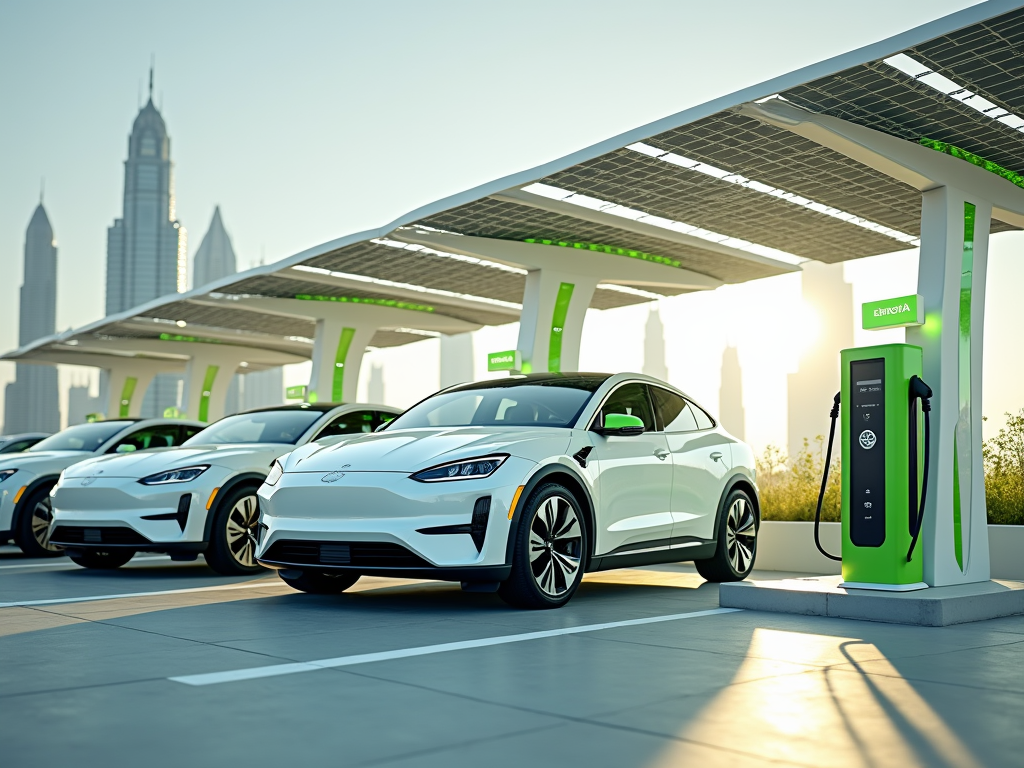Dubai’s energy sector has evolved into a thriving hub for investment, driven by innovative policies and a commitment to sustainability. The Emirate has strategically positioned itself as a leader in energy, focusing on renewable energy sources and diversifying its energy portfolio. Investors worldwide are drawn to the opportunities in Dubai, presenting a unique investment landscape characterized by government support, innovative technologies, and sustainable practices. Understanding the dynamics of this sector is crucial for potential investors. This article delves into the various facets of the energy investment landscape in Dubai, highlighting market opportunities, challenges, and future trends.
Current State of Dubai’s Energy Sector

Dubai’s energy sector is characterized by a shift from traditional sources to more sustainable energy solutions. The government has laid out ambitious goals through its Energy Strategy 2050, aiming to increase the contribution of clean energy in the energy mix. As of recent assessments, the energy sources in Dubai are dominated by natural gas, but there is a notable increase in investments in renewable sources such as solar and wind. This transition is catalyzed by key projects such as the Mohammed bin Rashid Al Maktoum Solar Park, one of the largest solar parks worldwide. Dubai’s strategic geographic location as a trading hub enhances its status as an energy investment destination.
Key Investment Opportunities

The investment landscape in Dubai’s energy sector presents several lucrative opportunities for potential investors. The government’s commitment to sustainability opens doors for various sectors, including:
- Renewable Energy: Investments in solar and wind energy projects are soaring, driven by technological advancements.
- Energy Efficiency Technologies: The demand for efficient energy solutions has spurred investments in innovative technologies.
- Smart Grid Technology: Investments in smart infrastructure to enhance energy distribution and management system.
- Water Desalination: The need for sustainable water solutions fosters investment opportunities in desalination technology.
- Sustainable Transportation: Initiatives to develop electric vehicles and associated infrastructure are gaining traction.
The Dubai government plays a pivotal role in fostering a conducive investment climate in the energy sector. Various initiatives support local and foreign investors, including:
- 100% foreign ownership in the energy sector.
- Tax exemptions and incentives for renewable energy projects.
- Access to financing options through development banks and partnerships.
- Public-Private Partnerships (PPP) that leverage private investments in state projects.
- Investment in research and development for energy innovation.
These supportive measures are designed to attract investors and ensure the sector’s growth aligns with the UAE’s broader goals for economic diversification and sustainability
Challenges in the Energy Investment Landscape
Despite the promising opportunities, investors must navigate several challenges in Dubai’s energy sector. Competitive market pressures from neighboring regions can deter investment, as countries such as Saudi Arabia ramp up their own renewable energy sectors. Regulatory compliance can also be complex, requiring adherence to a myriad of local laws and international standards. Additionally, the volatility in global energy prices can affect long-term investment viability. Market entry can be challenging due to the established presence of large national oil companies. To successfully invest, strategic planning and risk management are essential.
The Future of Energy Investment in Dubai
The future investment landscape in Dubai’s energy sector appears bright, with a continued push for diversification and sustainability. The increasing global emphasis on combating climate change aligns well with Dubai’s vision for its energy future. As the demand for energy storage solutions and renewable energy increases, investors are expected to capitalize on emerging technologies and innovations. The International Renewable Energy Agency (IRENA) also foresees growth in renewable energy investment in the region, fostering greater collaboration between global investors and local partners. The successful integration of new technologies will likely drive efficiency and help solidify Dubai’s position as a leading energy hub in the Middle East.
Conclusion
In conclusion, Dubai’s energy sector presents a vibrant investment landscape characterized by substantial opportunities and some inherent challenges. The Emirate’s strategic approach toward renewable energy, supported by robust government incentives, paves the way for both local and international investments. As Dubai continues its transition, investors who align themselves with sustainable initiatives can benefit significantly. It is important to remain informed about the evolving market dynamics and to approach investments with strategic foresight and adaptiveness.
Frequently Asked Questions
1. What is the primary focus of Dubai’s energy strategy?
Dubai’s primary focus is to increase the share of clean energy sources in its energy mix, aiming for a target of 75% by 2050.
2. What are the major forms of renewable energy being explored in Dubai?
Dubai is heavily investing in solar and wind energy, with significant projects such as the Mohammed bin Rashid Al Maktoum Solar Park leading the way.
3. How can foreign investors participate in Dubai’s energy sector?
Foreign investors can participate through 100% ownership opportunities in renewable energy projects and can benefit from tax incentives offered by the government.
4. What challenges might investors face in Dubai’s energy market?
Investors may face challenges including regulatory complexities, competition from neighboring markets, and fluctuations in global energy prices.
5. What role does technology play in the future of Dubai’s energy sector?
Technology is crucial for enhancing energy efficiency, developing innovative renewable solutions, and implementing smart grid systems that optimize energy management.


